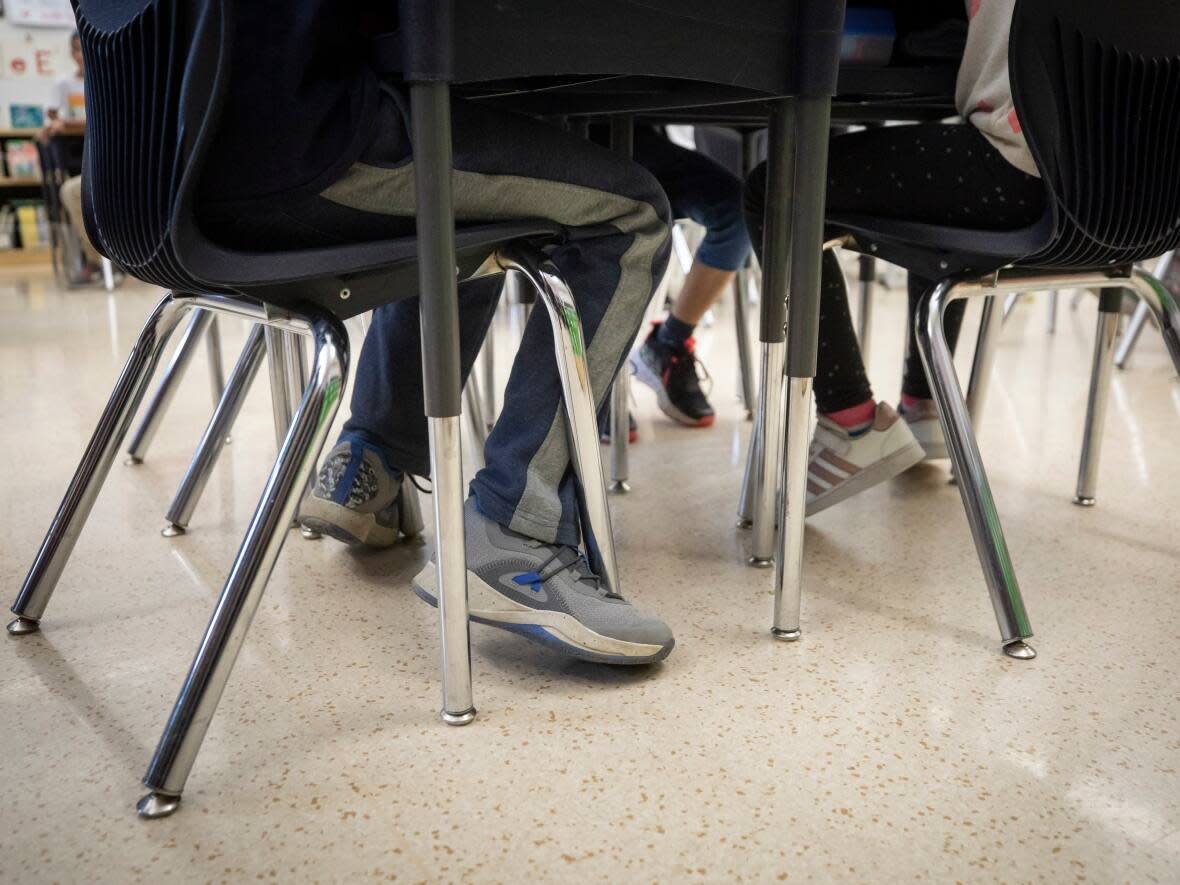Teachers, principals seeing more outbursts and less self-regulation, survey finds

Walk the halls of an elementary or high school these days, and you'll see anxious kids, many unable to regulate their emotions, fearful from the lasting effects of the pandemic and unable to cope.
Helping them falls to the teachers and administrators in the building, as well as a few social workers and psychologists — but more are needed, suggests a new report from advocacy group People for Education, which surveyed principals from around Ontario.
"We're still picking up the pieces a little bit with some kids. We do see with staff and certainly with students issues of mental health and deregulation, and we do need to provide support for them," said Patti Baker, a principal at Lester B. Pearson school for the arts. She's been a principal with the Thames Valley District School Board for 22 years.
"Kids are really good at adapting, but we have to be mindful of the fact that while we think they're adapting well, we need to watch their behaviour to make sure they really are."
More than 1,000 principals from across the province told People for Education they're seeing more behavioural issues, lack of self-regulation, and unaddressed mental health challenges. Many also said they had no access to social workers and psychologists, though London-area principals did not raise that concern with CBC News.
But more and more mental health work is being downloaded onto principals and teachers, said Craig Smith, president of the local elementary teachers union.
"The report correctly identifies that the staff, and by extension students and the system as a whole, are in a state of severe stress and maybe even distress when it comes to mental health issues and the supports required to help both students and staff deal with the situation we're in right now and where I think we will be in the immediate and longer-term future," Smith said.
"We have to take mental health issues seriously both for students and for staff, including teachers and principals, and that needs to happen with deliberate purpose and with due haste."
Coming back is 'an adjustment'
There's an increasing demand for mental health services in all forms, and not a lot of resources, Smith said.
"There are plans but nothing really to adequately support the implementation of those plans to ensure that staff and students are receiving the support they need."
Teachers are not mental health professionals and cannot be delivering that kind of service, he added.
Some kids go "off the rails quicker," and others have longer or louder outbursts, Baker said, and teachers and administrators are always on the lookout for that. "I think we're all trying to do everything we can for everybody all the time as far as mental health, and there are a lot of resources in place for students and staff."
Coming back from the pandemic has been an adjustment for students, staff, and families, said John Marinelli, principal at St. Thomas Aquinas Catholic Secondary School.
"I would say the problems are bigger or more severe, but there's just more students who need support right now. There's more frequency," Marinelli said.
The support students get is different depending on their needs, he added.
It's important to catch students who are struggling early, said Andrea Harvey, a mental health lead with the London District Catholic School Board. She used to be a mental health nurse, dealing with acute patients in hospital, and came to the school system to help head off some of the severe problems she saw.
"We have social workers assigned to all of our schools, so principals can connect and consult and refer students who need more one-to-one intervention," Harvey said.
"I think the pandemic highlighted mental health issues but it also created space for people to talk about it, and to reduce some of the stigma," she said.
People for Education is calling for a task force made up of people involved in education from all levels, from students to directors of education, to evaluate whether funding is adequate and that students and staff are supported.


